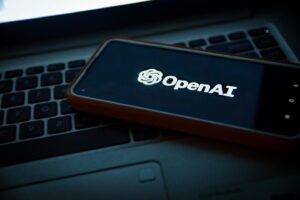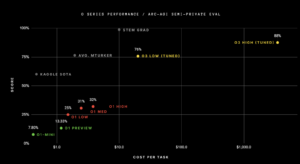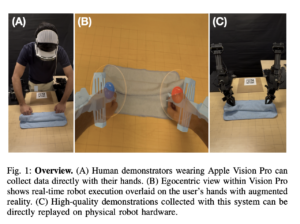Ten Tasks Achievable with GPT-4 that were not Possible with GPT-3.5

GPT-4 introduces a range of advancements that empower it to perform tasks previously unattainable by its predecessor, GPT-3.5. Here, Let’s explore ten functions that highlight the enhanced capabilities of GPT-4, showcasing its potential across various domains.
Advanced Multimodal Capabilities
GPT-4 integrates advanced multimodal functionalities, allowing it to process and generate content that includes text, images, and even videos. Unlike GPT-3.5, which was limited to text-based input and output, GPT-4 can analyze visual content, provide detailed descriptions, and generate rich multimedia responses, making it invaluable for applications in fields like digital marketing and content creation.
Enhanced Contextual Understanding
With a more sophisticated understanding of context, GPT-4 excels in tasks that require maintaining coherence over extended conversations or documents. It can accurately track long-term dependencies in text, making it ideal for applications in legal documentation, technical writing, and complex storytelling, where maintaining context over many paragraphs or pages is crucial.
Improved Code Generation and Debugging
GPT-4’s enhanced programming capabilities enable it to generate more complex code snippets, understand intricate programming logic, and debug code more effectively than GPT-3.5. It supports various programming languages and can handle advanced coding tasks, making it a powerful tool for software development and code review processes.
Real-time Language Translation
While GPT-3.5 could perform basic translation tasks, GPT-4 offers real-time, high-fidelity translations across multiple languages, including dialects and regional variations. Its improved language comprehension allows for more accurate and culturally relevant translations, facilitating better communication in international business and travel.
Emotion and Sentiment Analysis
GPT-4 is capable of sophisticated emotion and sentiment analysis, detecting subtle emotional cues and sentiments within text. This capability is crucial for applications in customer service, mental health support, and social media monitoring, where understanding user emotions can lead to more empathetic and effective responses.
Enhanced Personalization
With advanced personalization algorithms, GPT-4 can more accurately tailor its responses to individual user preferences and needs. This feature is particularly useful in personalized education, where the model can adapt to each student’s learning style and pace, providing customized lessons and feedback.
Complex Data Analysis and Visualization
GPT-4’s ability to interpret and generate complex data visualizations sets it apart from GPT-3.5. It can analyze large datasets, extract meaningful insights, and present them through charts, graphs, and other visual formats. This capability is essential for business intelligence, scientific research, and data-driven decision-making.
Legal and Medical Advisory
With deeper domain-specific knowledge, GPT-4 can provide more accurate and nuanced advice in law and medicine. It can interpret legal documents, offer preliminary legal advice, analyze medical reports, and even assist in diagnosing medical conditions, serving as a valuable tool for professionals in these critical sectors.
Creative Collaboration
GPT-4’s advanced creative capabilities make it a superior collaborator in artistic endeavors. It can generate high-quality poetry, music, and visual art and even assist in scriptwriting and game design. Its ability to understand and contribute to creative processes opens new possibilities for artists and content creators.
Enhanced Ethical and Bias Mitigation
One of the significant improvements in GPT-4 is its enhanced ability to recognize and mitigate biases in its responses. With built-in ethical considerations and a more robust understanding of societal norms, GPT-4 aims to provide more fair and unbiased outputs, which are critical for applications in sensitive areas like hiring, admissions, and content moderation.
Sources
Aswin AK is a consulting intern at MarkTechPost. He is pursuing his Dual Degree at the Indian Institute of Technology, Kharagpur. He is passionate about data science and machine learning, bringing a strong academic background and hands-on experience in solving real-life cross-domain challenges.












